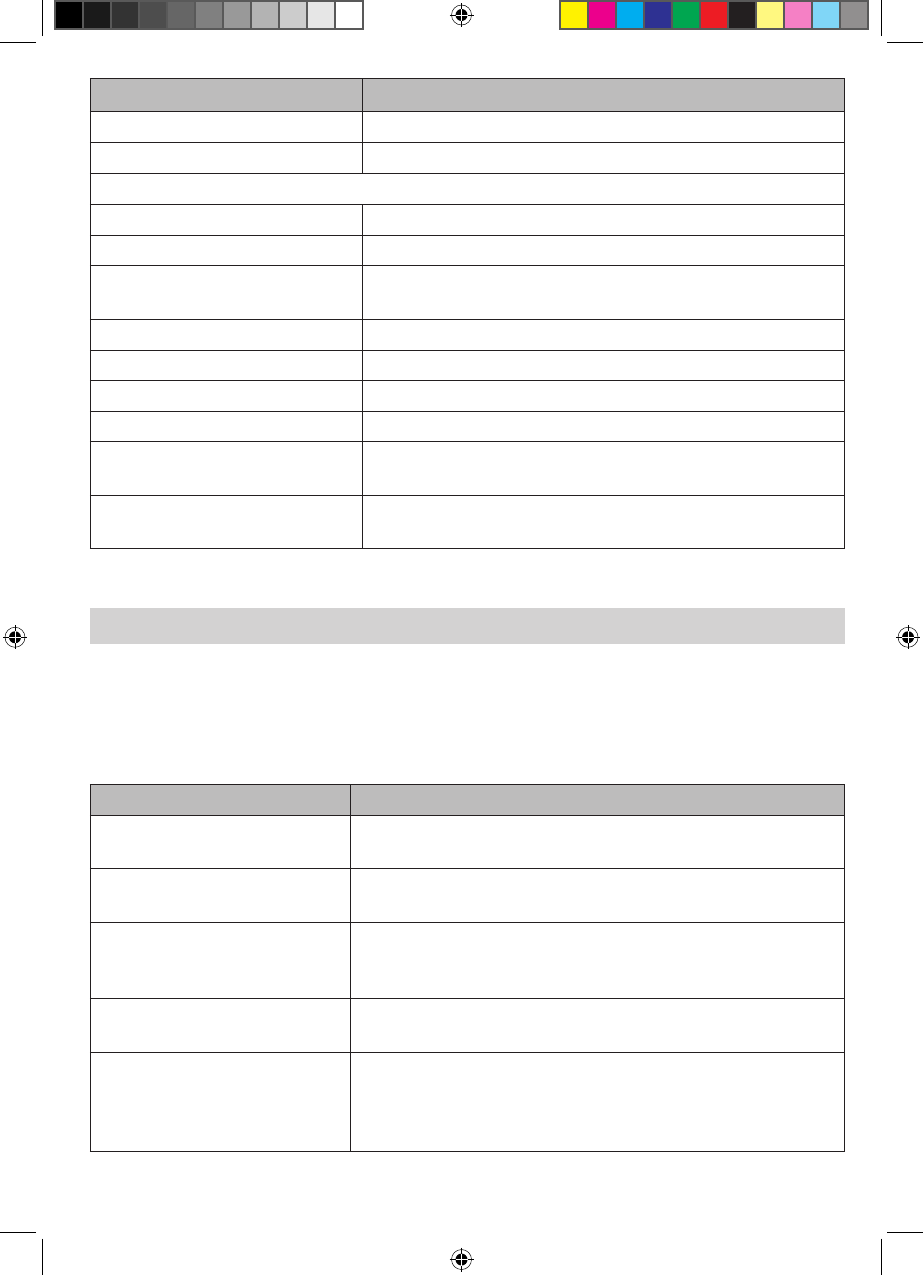
37
General
Frequency Range 156 to 158 MHz
Frequency Stability ±10 ppm @ –20°C to + 50°C
Receiver
Frequency Range 156 to 163 MHz
Sensitivity 0.25 μV for 12 dB SINAD (nominal)
Circuit Dual Conversion Super Heterodyne PLL (Crystal for
DSC)
Squelch Sensitivity 0.2 μV Threshold
Spurious Response 75 dB (nominal)
Adjacent Channel Selectivity 70 dB @ ±25 kHz (nominal)
Audio Output Power 2.5 watts (10% Distortion, 8 Ω load)
Power Requirement 340 mA (nominal) @ 13.8V DC at squelched, 840 mA
(nominal) @ 13.8V DC at maximum audio output
IF Frequencies 1st 41.925 MHz, 2nd 455 kHz (1st 21.7 MHz, 2nd 455
kHz for DSC)
REFERENCE TABLES
#This radio does not support AIS channels.
The table below lists the display name or channel description used in the following tables
and what each description means.
Channel name/description Used for:
DISTRESS SAFETY AND
CALLING
primarily emergency messages and distress calls
INTERSHIP SAFETY safety messages from one ship to another, or from a
ship to Coast Guard aircraft
NON-COMMERCIAL
(recreational or voluntary
ships only)
messages about the needs of the ship, including fishing
reports, rendezvous, scheduling repairs and berthing
information
COMMERCIAL (working
ships only)
messages about the needs of the ship or the business
the ship is engaged in
PUBLIC
CORRESPONDENCE/
MARINE OPERATOR
calls to the marine operator at a public coast station.
Marine operators can connect you to the telephone
network so you can make and receive calls. (There is
usually a charge for this service.)
UM380_20101221.indd 37 4/13/2011 11:25:18 AM
